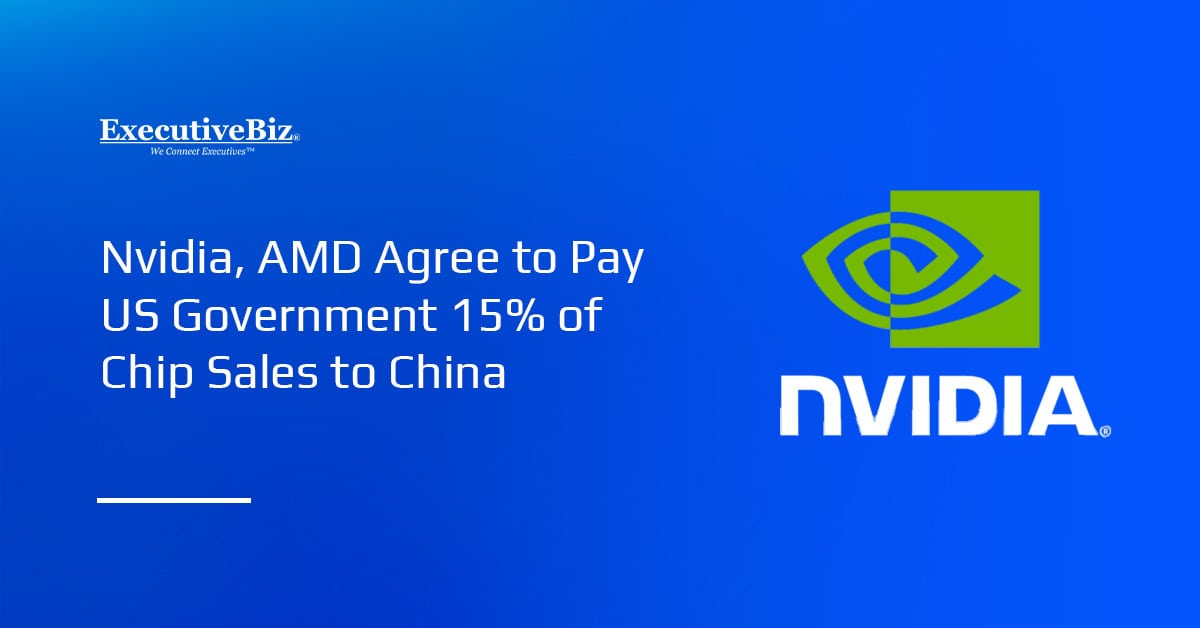Nvidia and AMD have reached an agreement to pay the U.S. government 15 percent of their revenue from sales of advanced computer chips to China, Reuters reported Sunday.
Join the Potomac Officers Club’s 2025 GovCon International Summit on Oct. 16 and learn about the Department of Defense’s efforts to establish international partnerships and enhance warfare technology.
New Policy Allows Chip Sales to China
The new arrangement, which was revealed anonymously by a U.S. official on Sunday, serves as a condition for obtaining export licenses needed to resume sales of advanced artificial intelligence chips like Nvidia’s H20 and AMD’s MI308 to the Chinese market. The Department of Commerce has started issuing the licenses, according to another U.S. official who has also declined to be named.
The development comes after the government implemented a temporary ban on sales of H20 chips to China in April and Nvidia’s July announcement that it would be allowed to continue selling the computer chips.
Neither the Commerce Department nor AMD has commented on the matter. On the part of Nvidia, a spokesperson said, “We follow rules the U.S. government sets for our participation in worldwide markets,” adding, “While we haven’t shipped H20 to China for months, we hope export control rules will let America compete in China and worldwide.”
Security Experts Express Concerns
The sale of advanced computer chips to China has raised concerns, particularly on national security. Alasdair Phillips-Robins, a former Commerce Department adviser, said, “If this reporting is accurate, it suggests the administration is trading away national security protections for revenue for the Treasury.”
Center for New American Security Senior Fellow Geoff Gertz, stated, “Either selling H20 chips to China is a national security risk, in which case we shouldn’t be doing it to begin with, or it’s not a national security risk, in which case, why are we putting this extra penalty on the sale?”






